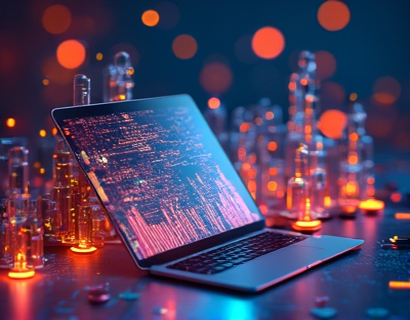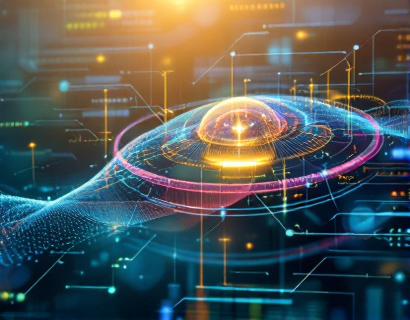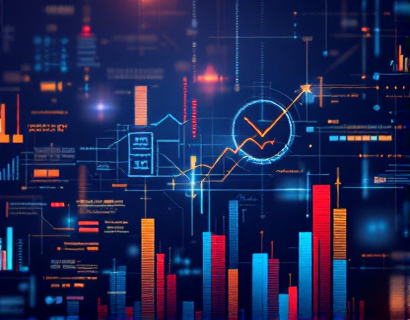AI and Crypto: A Synergistic Force Reshaping Digital Experiences
The intersection of artificial intelligence and cryptocurrency is giving rise to a new era of digital transformation, where the boundaries of technology are being redefined. This fusion is not just about combining two advanced fields but creating a synergy that enhances user experiences, secures transactions, and opens up new possibilities in the digital realm. As tech enthusiasts and innovators, understanding this integration is crucial for anyone looking to stay ahead in the rapidly evolving tech landscape.
Understanding the Basics: AI and Cryptocurrency
Artificial intelligence, or AI, refers to the simulation of human intelligence processes by machines, particularly computer systems. These processes include learning, reasoning, and self-correction. AI technologies such as machine learning, natural language processing, and computer vision are transforming various industries by automating tasks, providing insights, and improving efficiency.
Cryptocurrency, on the other hand, is a digital or virtual currency that uses cryptography for security. It operates on a decentralized network, typically a blockchain, which ensures transparency and immutability. Bitcoin, launched in 2009, was the first and most well-known cryptocurrency, but since then, thousands of altcoins have emerged, each with unique features and applications.
The Convergence: AI in Cryptocurrency
The integration of AI into cryptocurrency systems is revolutionizing the way these digital assets are created, traded, and managed. One of the most significant applications is in the realm of security. AI algorithms can detect and prevent fraudulent activities by analyzing patterns and anomalies in transaction data. This real-time monitoring enhances the security of cryptocurrency exchanges and wallets, reducing the risk of hacks and scams.
Another area where AI shines is in market analysis and prediction. Traditional trading relies heavily on fundamental and technical analysis, but AI can process vast amounts of data to identify trends and make predictions with higher accuracy. Machine learning models can analyze historical price data, market sentiment, and even social media trends to forecast price movements, giving traders a competitive edge.
Enhancing User Experiences through AI
The user experience in the crypto space is being significantly improved through AI-driven solutions. For instance, chatbots powered by natural language processing can provide 24/7 customer support, answering queries and guiding users through complex processes. These AI assistants can handle a wide range of tasks, from explaining blockchain concepts to assisting with wallet management and transaction execution.
Personalization is another key benefit. AI algorithms can analyze user behavior and preferences to offer tailored recommendations. Whether it's suggesting optimal trading strategies, recommending new cryptocurrencies to invest in, or customizing the interface of a crypto app, AI ensures a more intuitive and user-friendly experience.
Smart Contracts and AI: A Powerful Combination
Smart contracts, self-executing contracts with the terms directly written into code, are a cornerstone of blockchain technology. When combined with AI, these contracts become even more powerful. AI can automate the execution of smart contracts based on real-time data and conditions, ensuring that agreements are not only secure but also adaptive to changing circumstances. This automation reduces the need for intermediaries, lowering costs and increasing efficiency.
For example, in supply chain management, AI-driven smart contracts can monitor the movement of goods, verify compliance with contract terms, and automatically release payments when conditions are met. This level of automation and transparency is transformative for businesses and individuals alike.
Decentralized Finance (DeFi) and AI
Decentralized Finance, or DeFi, is an emerging sector that leverages blockchain technology to create financial services without traditional intermediaries. AI is playing a crucial role in enhancing DeFi platforms by improving risk management, optimizing portfolio management, and enhancing user experience. AI algorithms can assess creditworthiness, detect fraud, and manage liquidity in decentralized lending and borrowing platforms.
Moreover, AI can help in creating more efficient and user-friendly DeFi applications. By analyzing user interactions and feedback, AI can suggest improvements and innovations, ensuring that these platforms remain at the forefront of technological advancement. This synergy is paving the way for a more accessible and inclusive financial system.
Challenges and Considerations
While the integration of AI and cryptocurrency offers numerous benefits, it also presents challenges that need to be addressed. One of the primary concerns is regulatory compliance. The crypto space is still navigating a complex web of regulations, and the use of AI adds another layer of complexity. Ensuring that AI-driven solutions comply with local and international laws is essential to avoid legal issues and maintain trust.
Another challenge is the ethical use of AI. As AI systems become more autonomous, questions about bias, transparency, and accountability arise. It is crucial for developers and organizations to implement ethical AI practices, ensuring that these technologies are used for the greater good and do not perpetuate harmful biases or inequalities.
Future Prospects: The Road Ahead
The future of AI and cryptocurrency is bright, with numerous possibilities on the horizon. One exciting area is the development of AI-powered decentralized autonomous organizations (DAOs). These organizations use smart contracts and AI to make collective decisions, manage assets, and execute strategies without central authority. DAOs have the potential to democratize decision-making and create more resilient and adaptive organizational structures.
Additionally, the integration of AI with other emerging technologies like the Internet of Things (IoT) and 5G networks will further enhance the capabilities of the crypto ecosystem. For instance, AI can optimize the use of IoT devices in smart contracts, enabling more efficient and automated interactions between physical and digital assets.
As the tech community continues to explore and innovate, the synergy between AI and cryptocurrency will likely lead to breakthroughs in areas such as privacy, scalability, and interoperability. These advancements will not only benefit the crypto space but also have far-reaching implications for the broader tech industry.
Conclusion
The convergence of AI and cryptocurrency is a transformative force that is redefining digital experiences and app interactions. By enhancing security, personalizing user experiences, and automating complex processes, this integration is setting a new standard for innovation and efficiency. As tech enthusiasts and innovators, embracing these advancements is key to staying relevant and driving the next wave of technological progress. The future is undoubtedly exciting, and the possibilities are endless.











































